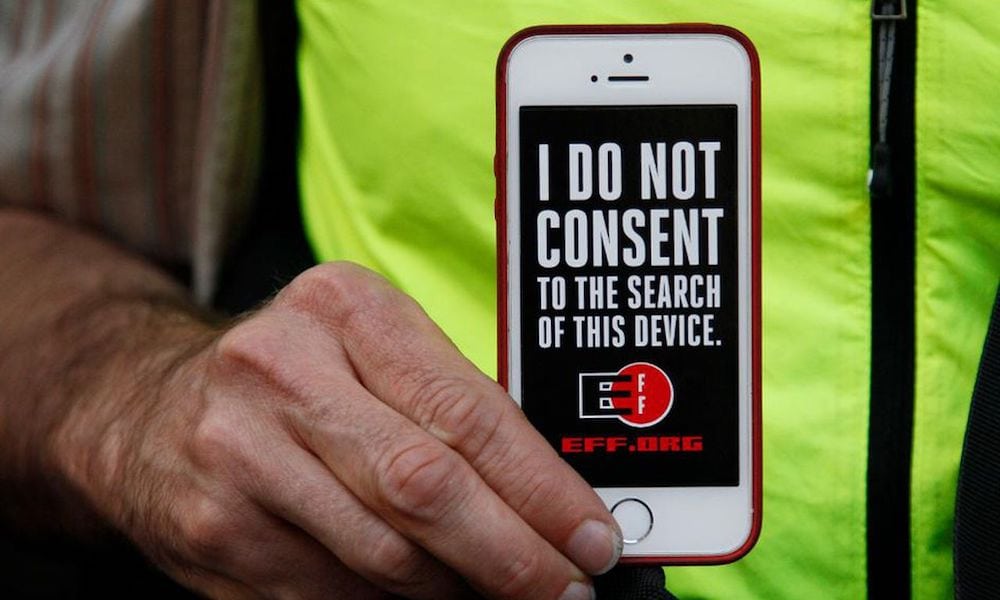Cops Need a Warrant to Collect Your Location Data, Supreme Court Rules
 Credit: EFF
Credit: EFF
Toggle Dark Mode
The U.S. Supreme Court has ruled that law enforcement organizations will need warrants to harvest location data from smartphone users.
It’s the first case involving smartphone location data that the Supreme Court has rendered a decision on. The 5-4 decision on Friday reversed a previous ruling made by the Sixth Circuit Court of Appeals.
The case, Carpenter v. United States, dates back to 2011. In the wake of a 2011 robbery in Detroit, authorities gathered “months” of location data records from Timothy Carpenter’s cellular service provider. However, that data was obtained without a warrant.
As stated earlier, a Sixth Circuit Court of Appeals judge ruled that location data isn’t protected under the Fourth Amendment, which shields Americans from illegal search and seizure. Today’s Supreme Court decision overrules that — and it sets a precedent in how law enforcement can collect data for criminal investigations.
“The government’s position fails to contend with the seismic shifts in digital technology that made possible the tracking of not only Carpenter’s location but also everyone else’s, not for a short period but for years and years,” Chief Justice John Roberts wrote in the ruling.
But the landmark decision may have implications for other types of data, too. As The New York Times points out, the logic of the decision suggests that police may also need a warrant to collect “other kinds of digital data that provide a detailed look at a person’s private life.”
On the other hand, the ruling did make an exception for emergency situations — including bomb threats, child abductions, pursuing fleeing suspects, protecting those in imminent harm, or preventing the “imminent destruction of evidence.”
“It’s not just about Carpenter, it’s about the rights of Americans who own cellphones, which is in excess of 95 percent of people in the country,” said Nathan Freed Wessler, an ACLU attorney who argued the case.
The Supreme Court heard arguments for the case back in November 2017.
Notably, Apple also spoke out against warrantless location searches in the case. Apple, along with a bevy of other firms, filed an amicus brief last August urging the court to bring the Fourth Amendment into the digital era.






